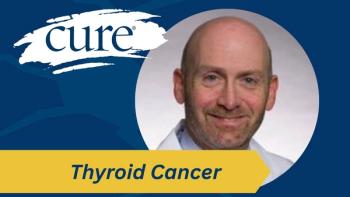
Medullary and Anaplastic Thyroid Cancer
Medullary Thyroid Cancer - For the most part, when people think of thyroid cancer, they think of an easily treatable disease. The reality of the matter is that this is seldomly the case. Thyroid cancer patients often deal with recurrences throughout their lives, after experiencing such lovely procedures as a radical neck dissection and systemic radiation treatments that can lead to other primary cancers. And this is for the “easy” papillary and follicular carcinomas (PTC and FTC).
Two other types of thyroid cancer exist, although they are very rare, accounting for only 1-2% of diagnoses for medullary thyroid cancer and X% for anaplastic thyroid cancer. Today, I’d like to take some time to visit with you about these rare thyroid cancers, their symptoms, treatments, and prognoses.
Medullary Thyroid Cancer
This incredibly rare form of cancer makes up only 1-2% of thyroid cancer diagnoses annually, yet can be one of the scariest. Medullary thyroid cancer (MTC) arises from the cells in the thyroid that produce calcitonin – a hormone that plays a role in the regulation of calcium in our bodies. In about ¼ of cases, MTC is inherited. In many of these cases, family members of an MTC patient can have a blood test that can identify the disease in its earliest, and most easily treatable stages.
Symptoms of MTC are similar to papillary and follicular carcinomas of the thyroid: a lump in the neck, soreness/pain in the neck, and hoarseness. In contrast to the more common types of thyroid cancer though, patients with MTC often have normal thyroid function tests.
Treatment usually starts with surgery to remove the thyroid gland and any adjacent lymph nodes that have become diseased. In contrast to treatment for PTC and FTC, medullary thyroid cancer does not respond to radioactive iodine, as the cancer is not in cells that absorb iodine. As such, external beam radiation and chemotherapy are treatment options for patients with disease that has spread beyond the thyroid. While a more aggressive cancer, MTC is thankfully slow growing.
Anaplastic Thyroid Cancer
Anaplastic thyroid cancer (ATC) is probably the scariest of all thyroid cancers. This rare form of thyroid cancer is aggressive and fast growing. It is known as an undifferentiated thyroid cancer, as the cancer cells do not look or behave in any manner like normal thyroid cells. The average time of survival after diagnosis is only 6 months, with only 1 in 5 patients surviving a year after diagnosis. In fact, this cancer is so aggressive that ALL patients are diagnosed as stage IV, with three substages:
Stage IVA: cancer is only present in the thyroid
Stage IVB: cancer is in the thyroid, and may be present in lymph nodes and other structures throughout the neck
Stage IVC: cancer has metastasized to distant locations such as the bones, lungs, and brain
Treatment for ATC is similar to MTC, in that radioiodine or thyroid suppression do not work on this disease. Given this, treatment usually consists of surgery, external beam radiation, and chemotherapy. The American Thyroid Association also tells us that many
If you or a loved one have been affected by any of the four major types of thyroid cancer, please know that you aren’t alone. Numerous groups are out there that are ready and willing to help. From
As always, much love, many prayers, and abundant blessings to all of the warriors out there!




